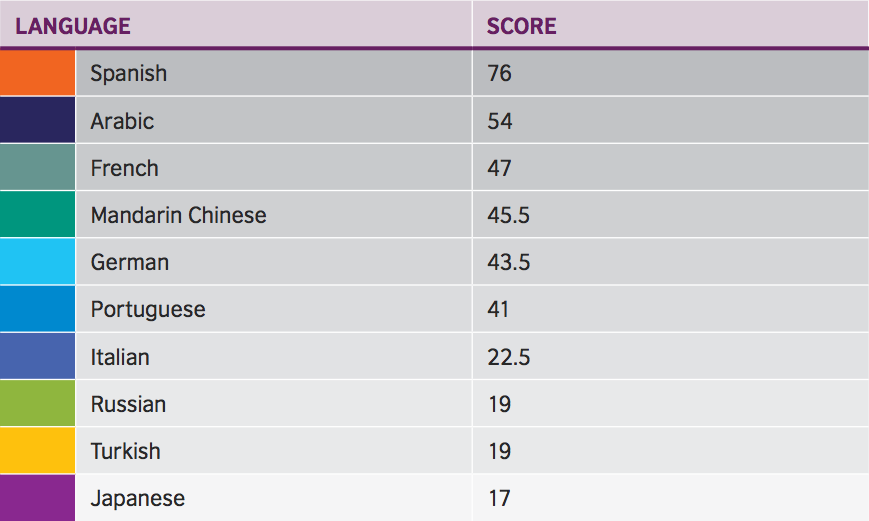Innovation
The 10 most important languages to learn
Over the next two decades the United Kingdom will need to be more proficient in languages like Arabic and Mandarin or risk its competitiveness in the global economy.

Learning a language isn't easy, but some languages could have a bigger payoff, in the coming decades, for your investment.
The Languages for the Future report [pdf] from the British Council highlights the languages that will be most important for the country in the next 10-20 years. In deciding the most important foreign languages for the country to learn, it looked at a number of important factors, from the U.K.'s current export market and future trade priorities to the languages spoken in high-growth emerging markets and the prevalence of difference languages on the Internet.
Taking those factors and others into consideration the British Council came up with this top 10 list of the most important languages over the next two decades:

Somewhat surprisingly, Arabic and Mandarin Chinese both are seen as more important in the future than German, even though Germany is the U.K.'s second largest export market behind only the United States. And Arabic ranked higher than French, the language which more British know than any other language other than English. Which, by the way, the British education system has some work to do.
In the results of this survey above of language skills by the U.K. population, only 27 percent know any of the top 5 languages. Only one percent have language skills in either Arabic and Mandarin Chinese.
Of course, the reports findings are aimed at a British audience. But the report also serves as a reminder for all countries, where English is the dominant language, that it's time to start expanding your foreign language vocabulary.
This post was originally published on Smartplanet.com